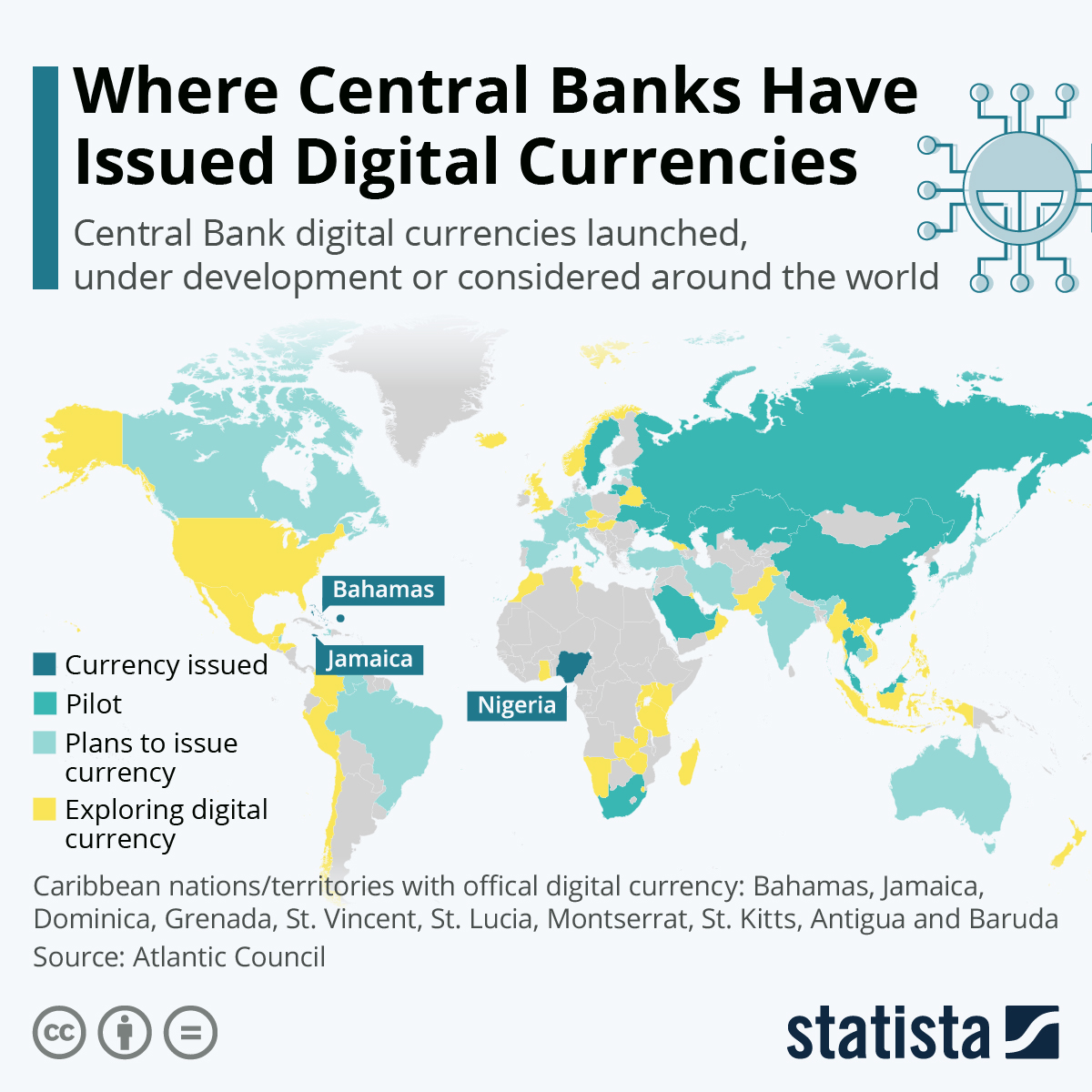The jingle of coins and the rustle of bills may become a relic of the past as central banks around the world delve into the potential of central bank digital currencies (CBDCs). Driven by the burgeoning digital economy and the growing popularity of cashless transactions, these government-backed digital tokens aim to streamline payments and enhance financial inclusion. But will CBDCs completely dethrone physical cash?
The rise of digital wallets and online payment systems has fundamentally altered how we conduct transactions. The COVID-19 pandemic further accelerated this shift, with a significant decline in cash usage observed globally. Central banks, keen to maintain control over their monetary systems in this evolving landscape, are exploring CBDCs as a potential solution.
Over 80% of the world's economies, including powerhouses like China and the European Union, are currently researching or developing CBDCs. Three countries – the Bahamas, Nigeria, and Jamaica – have already launched their digital currencies. These pioneering efforts offer valuable insights into the potential benefits and challenges associated with CBDCs.
Proponents hail CBDCs for their potential to boost financial inclusion. By offering a secure and accessible digital alternative to traditional banking systems, CBDCs could bring unbanked populations into the formal financial fold. Additionally, CBDCs could potentially streamline cross-border payments, eliminating the complexities and delays associated with traditional methods.
However, concerns linger regarding the potential impact of CBDCs on privacy and financial stability. Unlike cash, which offers a degree of anonymity, CBDC transactions could be traceable by central banks, raising privacy concerns for some users. Furthermore, the potential for governments to exert greater control over spending habits through programmable CBDCs has sparked debate.
Central banks are carefully considering these concerns as they design their CBDC models. Some models propose tiered systems, where smaller transactions might offer a level of anonymity similar to cash, while larger transactions could be subject to greater scrutiny.
The ultimate fate of cash in the face of CBDCs remains uncertain. While a complete transition to a cashless society seems unlikely in the near future, CBDCs are poised to play a significant role in the future of finance. Cash may not vanish entirely from our wallets, but it will likely coexist with its digital counterpart, offering consumers a wider range of payment options tailored to their needs.

